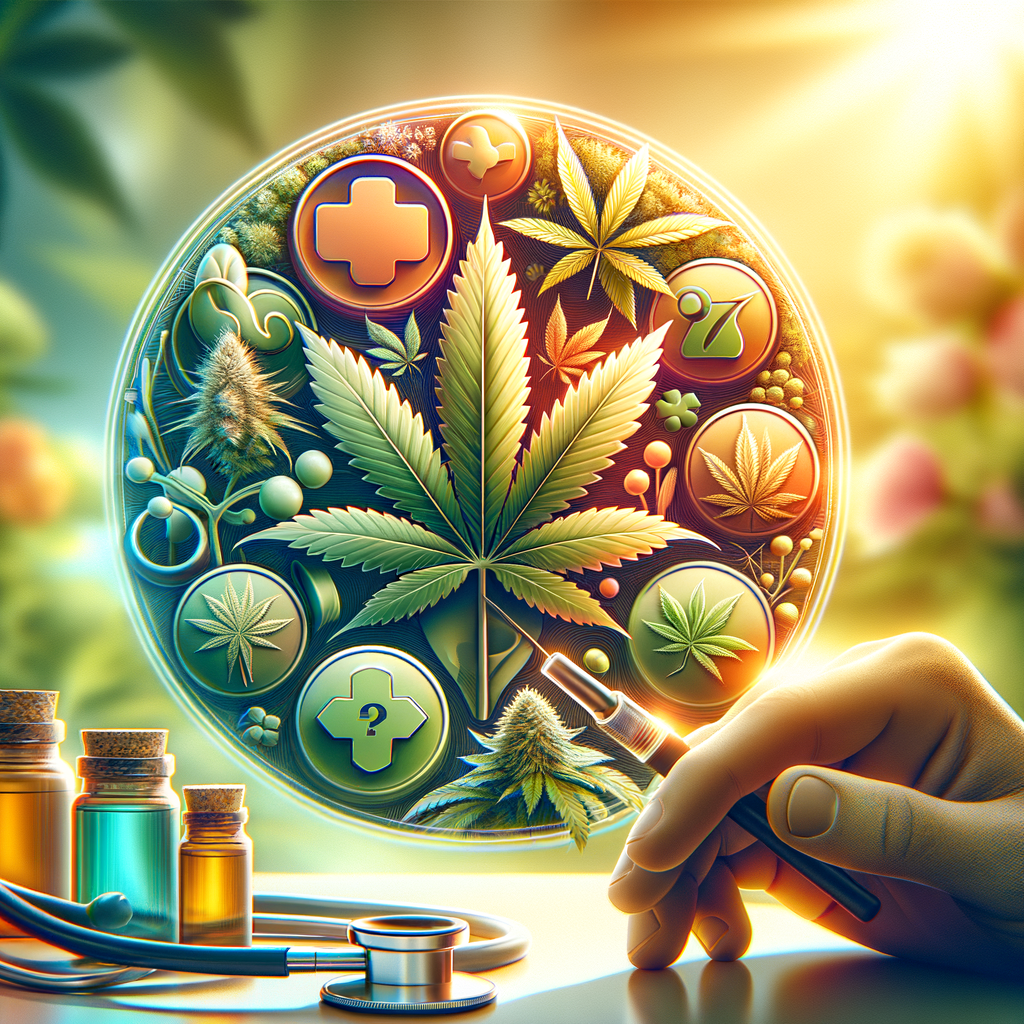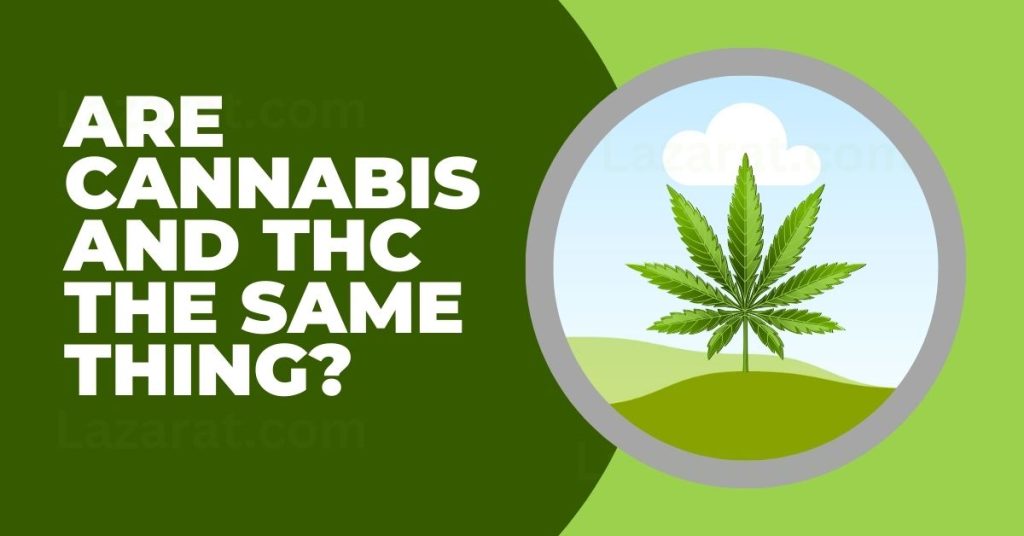Are Cannabis and THC the Same Thing?
If you’ve ever wondered whether cannabis and THC are the same thing, you’re not alone. I used to be just as confused. In fact, I once overheard two of my friends passionately debating this very topic. One swore up and down that THC is cannabis, while the other insisted that THC is merely part of the plant. Spoiler alert: They were both kind of right.
So, let’s settle this once and for all. By the end of this article, you’ll not only know the key differences between cannabis and THC, but you’ll also be ready to confidently (and maybe even smugly) explain it to anyone who’s still in the dark.
What Is Cannabis?
Let’s start with the basics. Cannabis is a plant—but not just any plant. It’s an ancient, highly versatile one that’s been cultivated for thousands of years for medicinal, industrial, and recreational purposes.
The cannabis plant belongs to the Cannabaceae family, and there are three main species: Cannabis sativa, Cannabis indica, and Cannabis ruderalis. Each species has unique characteristics that affect how the plant grows and how it’s used.
Chemical Compounds in Cannabis
The plant produces hundreds of chemical compounds, including cannabinoids, terpenes, and flavonoids. These compounds work together in what’s known as the entourage effect, enhancing each other’s benefits.
- Cannabinoids: The primary active compounds, including THC and CBD.
- Terpenes: These are aromatic compounds that give cannabis its distinctive smell and may also have therapeutic effects.
- Flavonoids: Found in many plants, flavonoids contribute to the plant’s color and may offer additional health benefits.
A Quick Fun Fact
Not all cannabis gets you high. That’s where THC enters the picture.
What Is THC?
THC stands for delta-9-tetrahydrocannabinol—a mouthful, I know. It’s one of many cannabinoids produced by the cannabis plant and is the primary compound responsible for its psychoactive effects. In simple terms, THC is what gets you high.
When you consume cannabis, THC interacts with your body’s endocannabinoid system (ECS), binding to CB1 receptors in the brain. This interaction produces a range of effects, including:
- Euphoria – The classic “high.”
- Increased appetite – Also known as “the munchies.”
- Altered perception of time – Minutes can feel like hours.
- Relaxation – Many people use THC to unwind.
- Memory impairment – Finding your keys might become a challenge.
But THC is just one of over 100 cannabinoids found in the cannabis plant. Another superstar? CBD (cannabidiol), which is non-psychoactive but comes with its own set of therapeutic benefits.
Cannabis vs. THC: What’s the Difference?
Now to the million-dollar question: Are cannabis and THC the same thing?
In short—no.
Think of cannabis as the whole plant, while THC is just one of its many chemical compounds. Here’s an analogy: if cannabis were a pizza, THC would be the pepperoni. Sure, it’s a key ingredient (especially if you’re a pepperoni fan), but it’s not the whole pizza.
Since cannabis contains much more than just THC, different strains and products can have wildly varying effects:
- Some strains are high in THC, delivering strong psychoactive effects.
- Others are rich in CBD, providing more therapeutic benefits without the high.
THC vs. Other Cannabinoids
To better understand THC’s role, let’s compare it to some of the other major cannabinoids found in cannabis.
THC vs. CBD
CBD is like THC’s chill cousin. While THC is all about the high, CBD doesn’t cause intoxication. Instead, it’s known for properties that may help with anxiety, inflammation, and even epilepsy.
In fact, some CBD products can counteract the psychoactive effects of THC, helping users feel more balanced.
THC vs. CBN
CBN (cannabinol) forms when THC degrades over time. While it’s mildly psychoactive, it’s primarily known for its sedative properties and is often used as a natural sleep aid.
THC vs. CBG
CBG (cannabigerol) is often called the “mother of all cannabinoids” because it’s a precursor to both THC and CBD in the cannabis plant. Unlike THC, CBG is non-intoxicating but shows promise for treating conditions like glaucoma, inflammation, and digestive disorders.
The Legal Landscape: Cannabis vs. THC
Here’s where things get tricky. Cannabis laws are all over the map. Some places have fully embraced cannabis legalization, while others still heavily regulate or ban THC.
In the United States, for example:
- Hemp-derived CBD products with less than 0.3% THC are federally legal.
- Marijuana (which contains higher THC levels) remains federally illegal, though many states have legalized it for medical or recreational use.

Why Understanding the Legal Difference Matters
Knowing the difference between cannabis and THC can help you make informed decisions, especially when traveling or purchasing cannabis products. Always check local laws to ensure you’re in the clear.
The Effects of THC on the Body
When consumed, THC affects both the mind and body. Some people love its effects, while others may find them overwhelming.
Common Effects of THC
- Euphoria and relaxation
- Heightened sensory perception
- Increased appetite (the munchies)
- Distorted perception of time
- Temporary memory issues
Potential Risks and Side Effects
While many people enjoy the effects of THC, it’s not without risks. High doses can lead to:
- Anxiety and paranoia
- Short-term memory loss
- Dry mouth and red eyes
- Increased heart rate
- Impaired coordination
Final Thoughts
So, are cannabis and THC the same thing? Definitely not. Cannabis is the whole plant, while THC is just one of its many compounds.
Next time someone asks, you’ll be ready to drop some knowledge—and maybe even impress them with a fun analogy or two.
Now, if you’ll excuse me, I’m off to grab a slice of pepperoni pizza. You know, for scientific comparison.
© 2025 by Lazarat.com. All rights reserved. No part of this document may be reproduced or transmitted in any form or by any means, electronic, mechanical, photocopying, recording, or otherwise, without prior written permission of Lazarat.com.

Leave a Reply